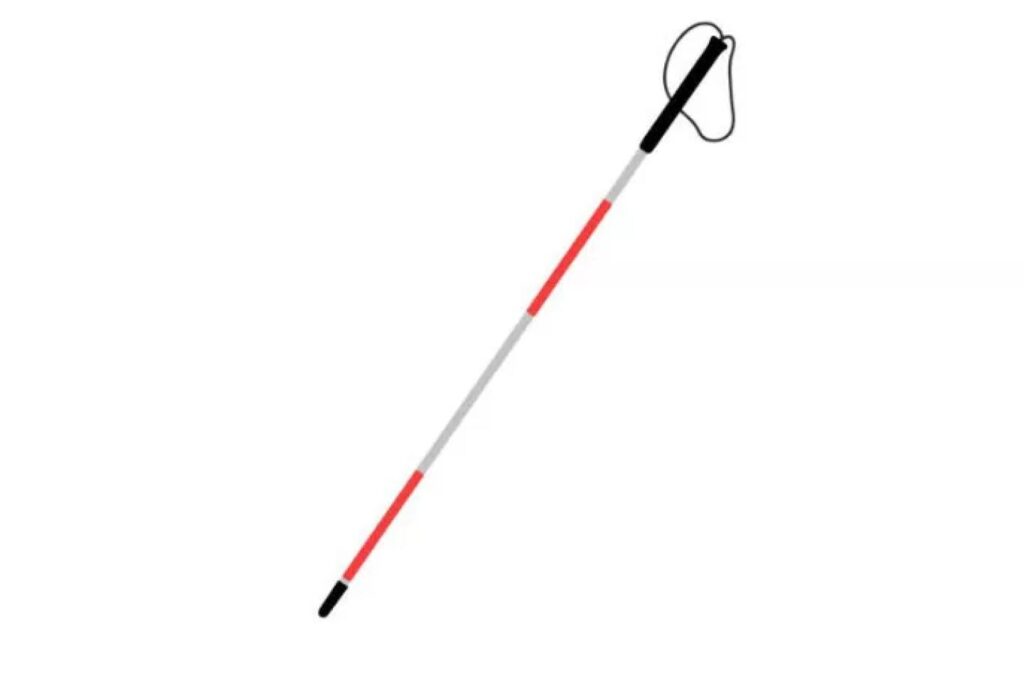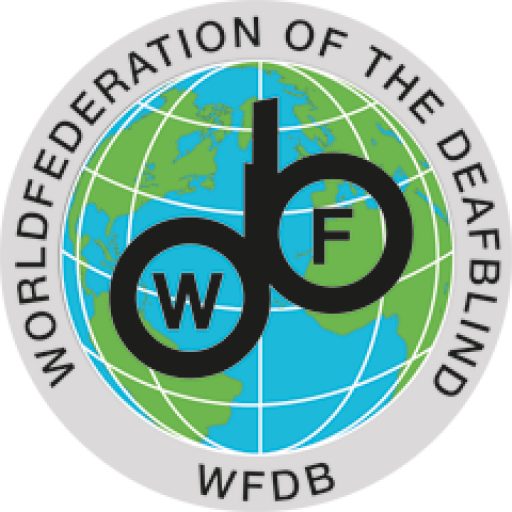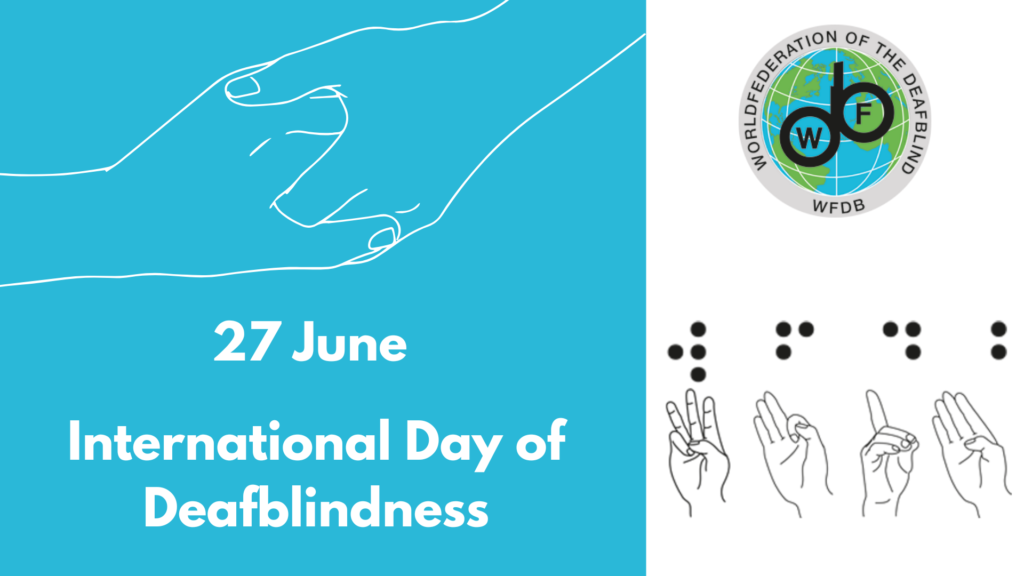On Monday, 16 June 2025, the United Nations General Assembly adopted a landmark resolution officially proclaiming June 27 as the International Day of Deafblindness. This historic declaration (Resolution A/79/L.92) affirms deafblindness as a unique and distinct disability and calls upon all Member States, UN agencies, and global stakeholders to promote the empowerment, inclusion, and rights of persons with deafblindness. You can read here our press release for more information.
A Milestone for Recognition and Inclusion
The resolution, introduced by the Permanent Mission of Croatia to the UN, recognizes that persons with deafblindness represent one of the world’s largest minority groups — spanning all ages, backgrounds, religions, and continents. The Assembly emphasized that deafblindness is a combined vision and hearing impairment so profound that the senses cannot compensate for one another, creating unique challenges that require specific support and recognition.
This day commemorates the birthday of Helen Keller (1880–1968), a pioneering author, educator, and activist who was herself deafblind and whose legacy continues to inspire millions worldwide.
Key Provisions of the Resolution
- Official Proclamation: June 27 will be observed annually as the International Day of Deafblindness starting in 2025.
- Recognition of Deafblindness as a Distinct Disability: The resolution urges governments to recognize deafblindness separately in laws, policies, and programs.
- Awareness and Inclusion: Calls on all UN Member States, organizations, and civil society to raise awareness and promote the inclusion of deafblind persons.
- Importance of Interpreter Services: Highlights the critical role of professional deafblind interpreters and interpreter-guides in enabling access to communication, information, and community participation.
- Symbolic Recognition: Acknowledges the red and white striped cane as an important tool for mobility and identification within the deafblind community.

A Global Effort for Change
This achievement was made possible through the leadership of Croatia’s Permanent Mission to the UN and in close collaboration with the World Federation of the Deafblind (WFDB), guided by Dr. Sanja Tarczay, WFDB President and Vice President of the International Disability Alliance. Other core group countries include Antigua and Barbuda, Djibouti, Jordan, and the United Republic of Tanzania. The resolution was co-sponsored by 99 countries — an extraordinary show of unified international support for deafblind inclusion.
Dr. Tarczay commented,
“This resolution is a powerful example of the speed and effectiveness of organized civil society. It sends a clear message that persons with deafblindness must no longer be left behind.”
Building Momentum: The CoSP18 Side Event
Prior to the resolution’s adoption, a pivotal side event was held during the 18th Conference of States Parties to the Convention on the Rights of Persons with Disabilities (CoSP18) at the UN Headquarters in New York. Hosted by Croatia’s Permanent Mission alongside WFDB and the International Disability Alliance (IDA), this gathering was crucial in mobilizing support and raising awareness. The event was co-sponsored by Tanzania and Jordan.
Why This Matters
Persons with deafblindness face unique barriers that have too often rendered them invisible in statistics, policies, and social programs. These barriers impede access to education, healthcare, employment, and social participation. By officially recognizing deafblindness as a distinct disability and dedicating an international day to it, the UN has laid the foundation for:
- More inclusive legislation and policies tailored to the needs of deafblind individuals.
- Improved access to specialized services, including communication support.
- Greater public awareness and understanding of deafblindness.
- The promotion of fundamental rights, and full participation in society.
Our Call to Action
On this inaugural International Day of Deafblindness, the WFDB calls on governments, organizations, communities, and individuals worldwide to:
- Observe the day through education, advocacy, and inclusive events.
- Recognize and uphold the rights of persons with deafblindness.
- Invest in training and resources, including professional interpreters.
- Embrace the red and white cane as a symbol of identity and mobility.
- Celebrate the resilience, contributions, and voices of the deafblind community.
As Helen Keller once said,
“Alone we can do so little; together we can do so much.”
What’s Next for WFDB?
Following this historic recognition, WFDB remains committed to turning momentum into action. Our next steps include:
- Amplifying Voices through Inclusive Projects: WFDB will continue integrating the perspectives of persons with deafblindness into global initiatives — including the ASSIST Project, where we ensure representation from mothers with deafblindness and advocate for inclusive maternal policies.
- Hosting the Next Helen Keller World Conference: Preparations are underway for the World Conference on Deafblindness, also known as the Helen Keller World Conference, taking place 19–23 July 2027 at the Davos Congress Centre in Davos, Switzerland, in collaboration with Deafblind International (DbI). This global gathering will bring together stakeholders, researchers, and self-advocates to shape the future of deafblind rights.
- Launching a Call for Women’s Committee Representatives: To strengthen gender representation, WFDB will soon publish a call for interest for representatives to join our Women’s Committee. Stay tuned for this exciting opportunity to elevate women’s voices within the deafblind community.
- Engaging in Global Advocacy Forums: WFDB will continue to represent the voices of persons with deafblindness at high-level international forums, consultations, and negotiations — ensuring our rights and realities are visible and prioritized in global disability policy.
- Raising Awareness and Influencing Policy: We will keep advancing advocacy around key issues, including access to deafblind interpreters/ interpreter-guides. Our recent statement on the associated expenses underscores the urgent need for recognition and funding of these essential services.
Together with our members, partners, and allies, WFDB will continue working to ensure that persons with deafblindness are seen, heard, and included — everywhere decisions are made.

